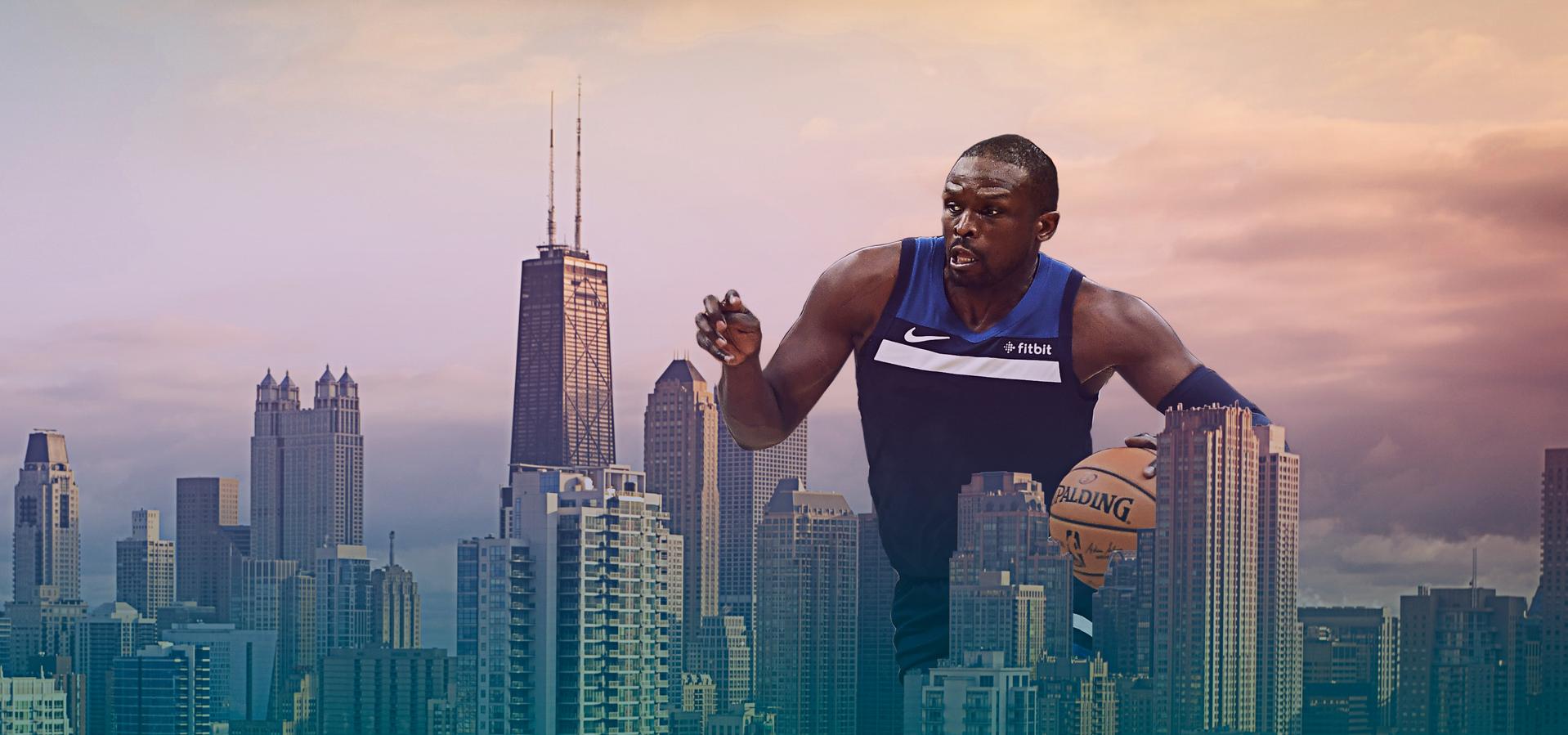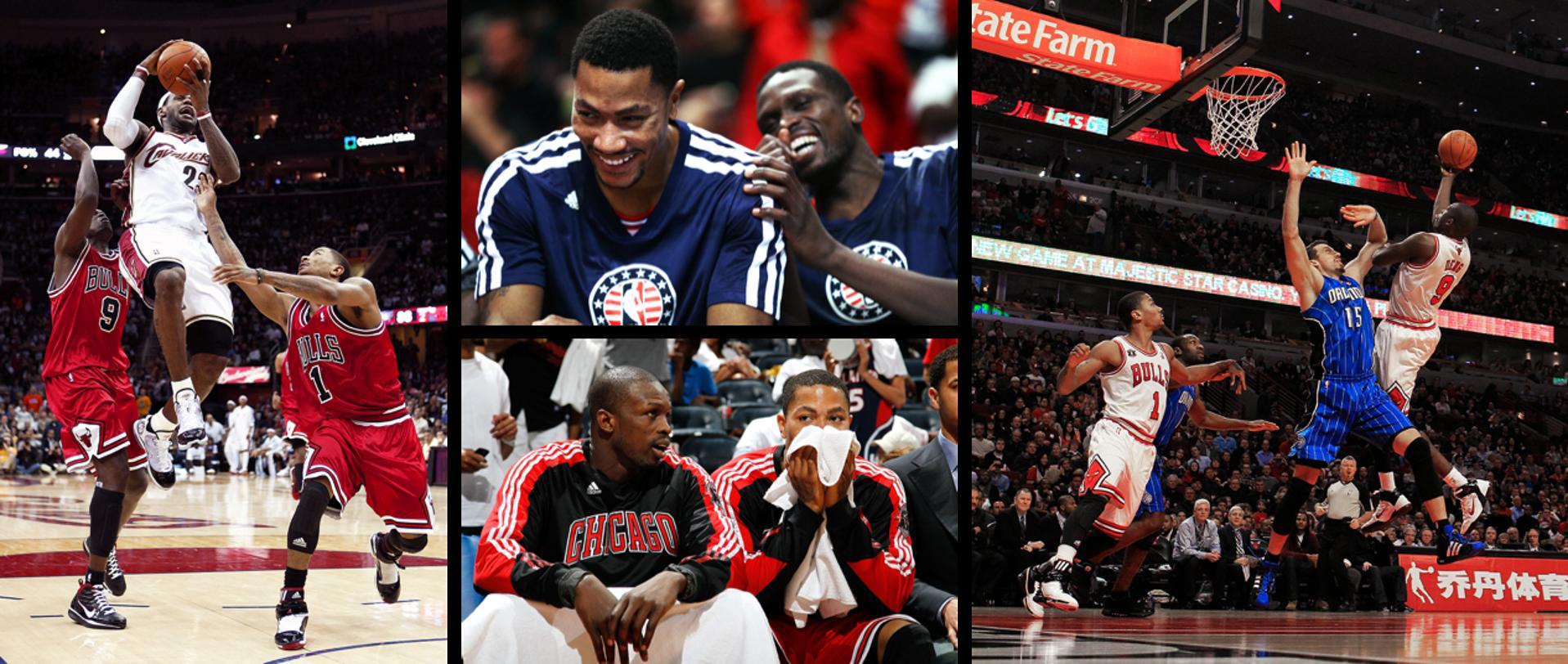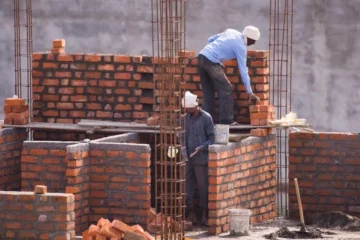
Luol Deng has spent 15 years in the NBA and has always put up solid numbers, averaging nearly 15 points per contest over 900-plus games. The 34-year-old forward, who played for the Minnesota Timberwolves this past season, has never been the headliner on any of the five teams he’s played for, but he does have a pair of All-Star Game selections on his résumé. It is the kind of long career that is quite lucrative in today’s NBA, where the salary cap exploded thanks to the tripling of the most recent TV contract with ESPN and TNT. The result—Deng’s career earnings on the court are $151 million.
But the Sudanese-born Deng is not waiting for the end of his playing days for his next big score. He’s been investing in real estate almost since the time he entered the league in 2004 and has amassed an impressive portfolio—hotels, resorts, condos and apartment buildings—worth $125 million.
Deng is part of a new crop of sports stars leveraging their fame and fortunes in new ventures and striking while the iron is hot. In the NBA alone, you have current players like Stephen Curry, Blake Griffin and LeBron James launching film production companies; Andre Iguodala and Kevin Durant are active venture capital investors; and Carmelo Anthony and Derrick Rose are also engaged in large-scale real estate deals.
“If you know the market and you are using your leverage and doing the right deals, it is really nonstop with the opportunities,” Deng says.
Real estate might not be as sexy or generate the headlines of athletes pouring money into tech startups, but the potential returns can be much more lucrative. The new 2017 tax law raises that threshold even higher with the creation of Opportunity Zones.
O-zones allow investors to plow recent capital gains into projects or companies in low-income areas in each state. Gains compound tax-free, and there are no limits on how much money you put in and how much tax you can avoid. There are nearly 9,000 designated O-zone areas, which are required to have a poverty rate of at least 20% or a median household income that is less than 80% of that of the surrounding area. Deng and at least a half-dozen NBA stars are part of Our Opportunity, which is a new O-zone fund seeking to raise $300 million this year.

Bullish: Luol Deng and Derrick Rose were integral to the success of the Chicago Bulls at the start of the decade. (Getty Images)
.
Deng and Rose were cornerstones of the Chicago Bulls at the start of the decade when the team posted the NBA’s best record in back-to-back seasons. The budding dynasty flamed out when Rose tore his ACL during the 2012 playoffs. Deng was traded by Chicago in 2014, and Rose was shipped out to the New York Knicks two years later.
The pair were reunited this past season with the Timberwolves and discussed their post-playing careers. The result of those talks have them back in Chicago on the verge of closing a massive real estate deal to acquire three sites comprising 23 buildings totaling 354 multifamily units at a cost of $25.6 million. Two of the three sites are in O-zones.
Off-Court Hustles
These NBA stars have budding media empires, while other basketball players have poured money into startups or real estate.
“I’ve always had a love for real estate and wanted to do something in Chicago for a long time,” says Deng, who spent 10 years playing for the Bulls.
The 2019 NBA Draft took place Thursday night in Brooklyn with freshmen Duke sensations Zion Williamson and R.J. Barrett among the first three picks. It was 15 years ago that Deng was also a freshman Blue Devil and top-ten pick. He stands as a role model on and off the court for his fellow Dukies.
Deng was born in Sudan and later lived in Egypt and England before moving to the United States to play basketball at age 14. After one year at Duke, he was selected seventh overall in the 2004 NBA Draft. Only Dwight Howard and Iguodala have generated higher career “Win Shares” from that draft class.
He started with investments in East Africa and London before putting his money to work in the U.S. in everything from spec houses in the Hamptons to multifamily units in Baltimore to the Virgin Hotels Las Vegas and a luxury resort in the Bahamas under his company’s banner, D3N9, which is a play on his name and number of siblings.
Deng says he has leaned on mentors like real estate entrepreneur Don Peebles and JPMorgan Chase CEO Jamie Dimon. He was good friends with Dimon’s daughter at Duke, and the banking titan was based in Chicago as CEO of Bank One and welcomed Deng to the city when he was drafted by the Bulls.
Deng’s main sounding board is former Wall Street banker David Gross, who serves as chief investment officer of D3N9, as well as CEO of the Confluent Group, an investment advisory. The two connected in 2014 through a mutual friend while Gross was at Columbia University getting a master’s degree in real estate development. Gross pitched the school on a certificate program for athletes and entertainers investing in real estate. Columbia passed, but Gross partnered with Deng and got the NBA Players Association to sign on.
NBA salaries have soared over the past decade, but the stigma of the player blowing through all of his money in retirement remains; an oft-cited 2009 Sports Illustrated article on the financial perils of pro athletes claimed that an estimated 60% of NBA players were broke within five years of retirement. Deng hoped to change that trajectory with his real estate symposium for players. The inaugural two-day event in 2015 attracted a dozen players and focused on investing in commercial real estate. Expanded investment summits took place the next two years.
“We talk about players going broke, but we don’t talk about why that is happening,” Deng says. “The symposiums were a way to teach players about real estate and foster better understanding of these kinds of investments.”
Gross helped Deng formalize his real estate holdings under D3N9, and the company now has seven employees. Gross launched the Our Opportunity coalition this year with recently slain rapper Nipsey Hussle, and Deng was an original investor. The idea is to use Opportunity Zone investments featuring “local heroes” from those particularly O-zone areas.
In February, Nipsey and Gross bought a plaza in the Crenshaw neighborhood of Los Angeles where the community activist was born. While Hussle was tragically shot and killed in March, Gross plans to move forward with the redevelopment of the property with a six-story residential building atop a commercial plaza.
The Crenshaw project and Deng’s Chicago investment serve as blueprints for what Gross wants to do in at least ten cities, including Cleveland, Miami, New Orleans and Philadelphia. The premise has a pair of well-known figures spearheading O-zone investments in each neighborhood.
Deng was the first hoops star to join Our Opportunity and has helped open the doors to other NBA veterans. Rose, Anthony and Josh Smith have since committed to the project. Anthony, who also invested with Deng in the Virgin Las Vegas, is the face of the investment in his hometown of Baltimore, which includes 91 units in a deal that will close this summer.
“Each has deep personal, civic and social ties to the communities and is committed to leveraging their personal brands and resources to radically change the status quo in the places they call home,” Gross says.
While Deng says he is not quite ready to hang up his high-tops, he will be looking for a new contract as NBA free agency unfolds next month. He is still owed $15 million by the Los Angeles Lakers, as part of the four-year, $72 million contract he signed in 2016 (the Lakers and Deng reached a buyout agreement on the final two years of the deal in 2018). But his original side hustle has set him up for a lucrative second career.
“I don’t think anyone has invested in real estate to this scale and level of sophistication while they are still an active player,” Gross says. “Most people wait until they are finished. Luol is going to hit the ground running.”
[“source=forbes”]



